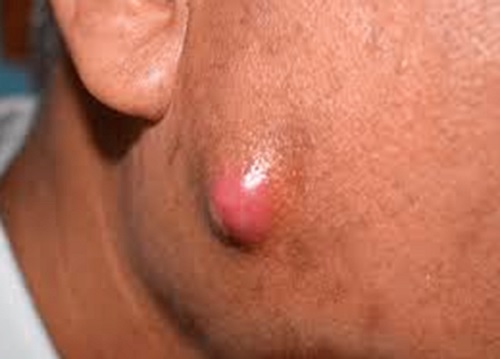
Why do boils choose such strategic locations?
We have all had boils before – those nasty, purulent, painful and uncompromising swellings with exudates like doubly thickened condensed milk.
For most people, it is not the boils which give them stress – it is where these boils tend to place themselves.
Boils often show up in the armpit, the buttocks, in the groin, around the breast or any other place that is embarrassing enough to show to anyone including doctors, pharmacists and nurses.
When boils occur in the buttocks, they turn simple situations into complex “standations” with people shifting and shuttling in tro-tros just to ensure that the ubiquitous Accra potholes do not complicate matters.
The pain and discomfort from boils leave patients no choice but to go to the hospital though they are often unable to say in plain language where the problem is occurring.
Sometimes all the patient says is: “I have a boil somewhere” or “I have two boils there” leaving the health worker with the simple task of deciphering where “somewhere” or “there” refers to on the body of the sufferer.
What are boils?
Boils are deep bacterial infections of the hair follicles on the skin.
They are caused by bacteria and may occur following injury or damage to the skin or the hair follicles. A collection of boils at the same place on the skin is referred to as “carbuncles”.
Whilst boils are common infections, patients are strongly advised to contact their doctor if they have recurrent boils since that may indicate the presence of diabetes mellitus or weakened immunity.
Patients who have boils may also have other symptoms including fever, tiredness, malaise, itching and redness around the boil. These symptoms disappear once the boil is treated.
Where do boils occur?
Boils can occur anywhere on the body though they tend to be common in the armpit, buttocks, thighs, face and neck.
Patients are strongly advised to see their doctor if they have boils which keep coming back despite adequate treatment or if the boil occurs in the ear, nostrils, spine or in the middle of the face.
How big can boils get?
Boils may start as very small groundnut-sized swellings but can grow to become big fluid-filled structures – sometimes as big as a tennis ball! Early treatment is advisable to prevent ballooning of boils and the complications such boils present especially if they are situated in uncomfortable locations on our anatomy.
How are boils treated?
Boils are caused by bacteria and are easily treated using antibiotics.
Sometimes antibacterial soaps are also given to cleanse the skin and thereby prevent the boil from recurring or from spreading.
Whilst some boils will disappear on their own without any treatment, several do not, and some may actually grow bigger and become more painful.
Big boils may be cut (incised) by doctors to allow drainage of the pus.
Patients with boils can speed up the healing process by using warm, moist compresses to cleanse the boils.
They can do this by soaking the boil with a warm, moist cloth twice or thrice a day.
Managing boils
Patients are strongly advised never to squeeze a boil or cut them open at home since this can spread the infection to nearby skin and make it worse.
If the cut the patient makes on the boil is big enough, it may open up the skin to other infections.
Patients are advised to soak a clean cloth in warm water and hold it against the boil for about 10 minutes 3 or 4 times a day and also clean the area around the boil regularly if pus comes out.
Patients are encouraged to have a bath twice a day and wash hands regularly.
They should also wash their towels and bedsheets at least once a week.
They may take painkillers like paracetamol if they have pain or high temperature.
Patients who are overweight should try to lose weight especially if they tend to have boils between the folds of their skin.
Patients should not pick, squeeze or pierce a boil and should not share their towel with other people until the boil has gone.
They are advised not to go to swimming pools or gym until the boil has gone.
Boils are nasty things but they are easily curable so patients should not suffer in silence however embarrassing the location of the boil is – doctors, pharmacists and nurses are trained to handle these sensitively and with a huge dose of empathy.
The writer is the author of the book “Healthy Secrets – a layperson’s guide to health issues.” His 2 new books – Healthy Secrets SUPER and Healthy Secrets XTRA are out in May 2024.
